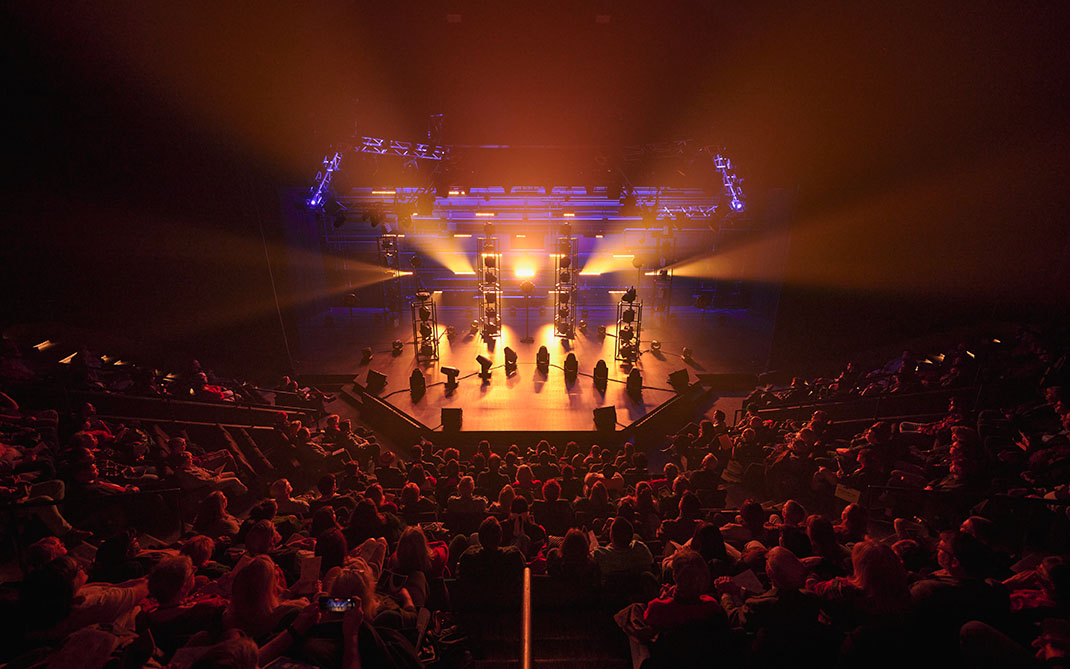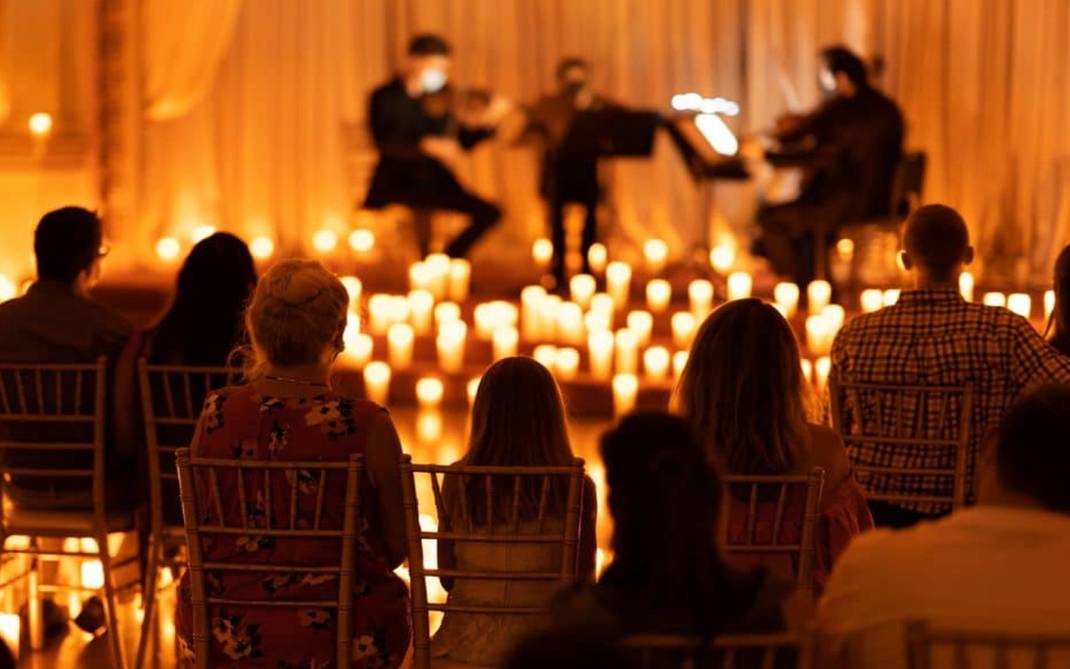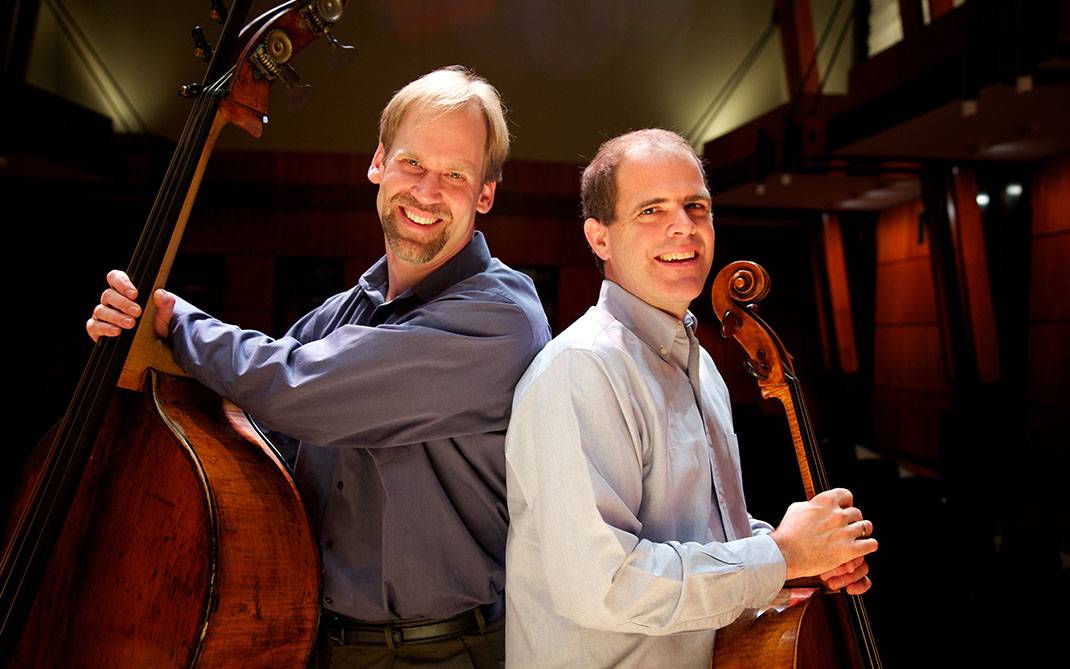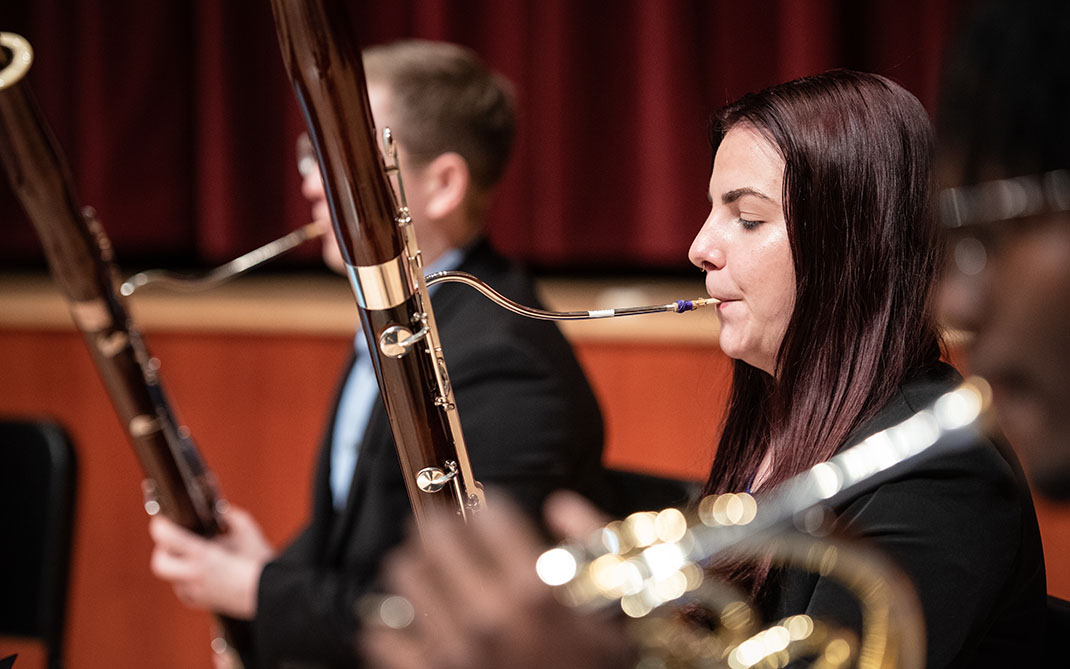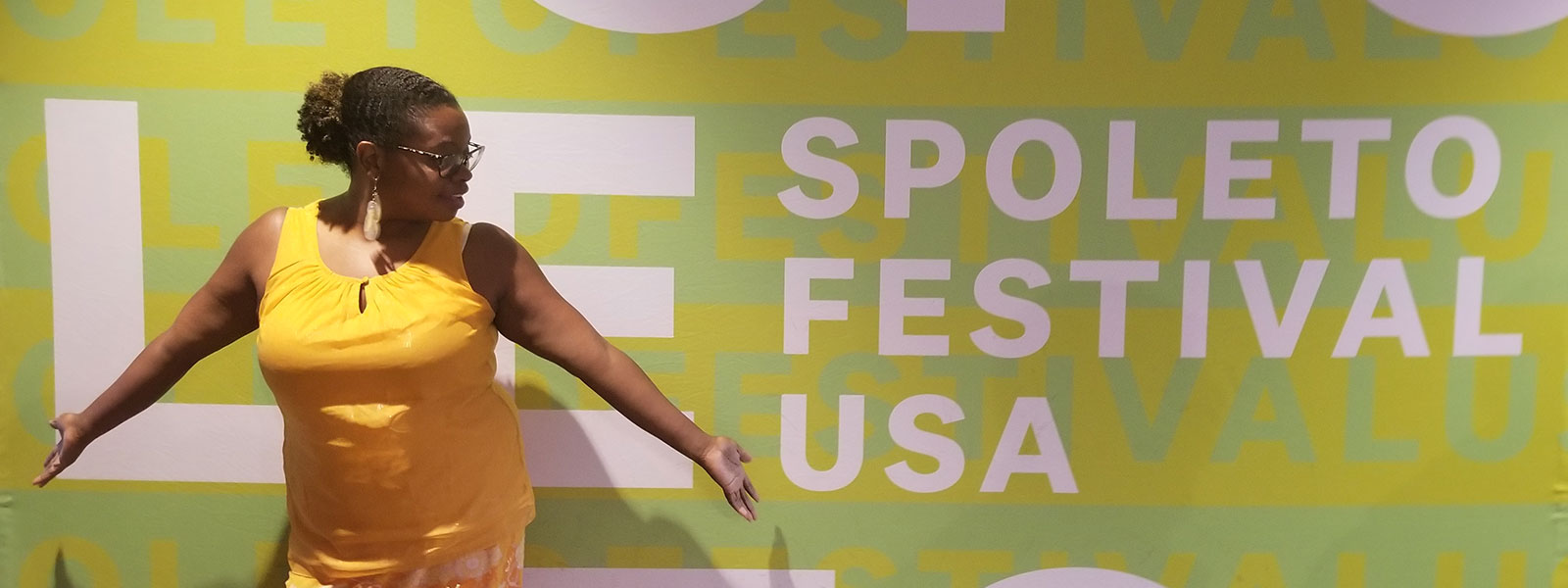Creative Catalyst Fellowship kick starts creative change and career growth
For Latesha Smith, engaging in an 18-month Fellowship with Spoleto Festival USA, coupled with the Creative Catalyst Certificate program, is all about the pivot. The program has helped invigorate her career and experience in arts administration, while allowing her to deepen her talents and explore new skills.
As a Creative Catalyst Fellow and a member of the first cohort in the Kenan Institute’s Creative Catalyst Certificate program, she is one of 12 fellows in the program’s inaugural year, co-funded by the Thomas S. Kenan Institute for the Arts and respective fellowship hosts. This leadership development program, launched in 2019, provides comprehensive support to the next generation of arts leaders especially in the Southeast.
Cultivating the artist mindset
Having spent years in special event planning, Smith is more than comfortable with the administrative side of the arts and cultural sector. Participating in the Creative Catalyst program, she says, has also helped deepen her practice in community engagement, the primary role she is serving through her Fellowship with Spoleto.
“The Creative Catalyst courses have helped me develop my leadership skills as well as a more creative mindset. So now with everything I do in this position, I think about how an artist would react. What are their needs? Am I being generous?” Smith says.
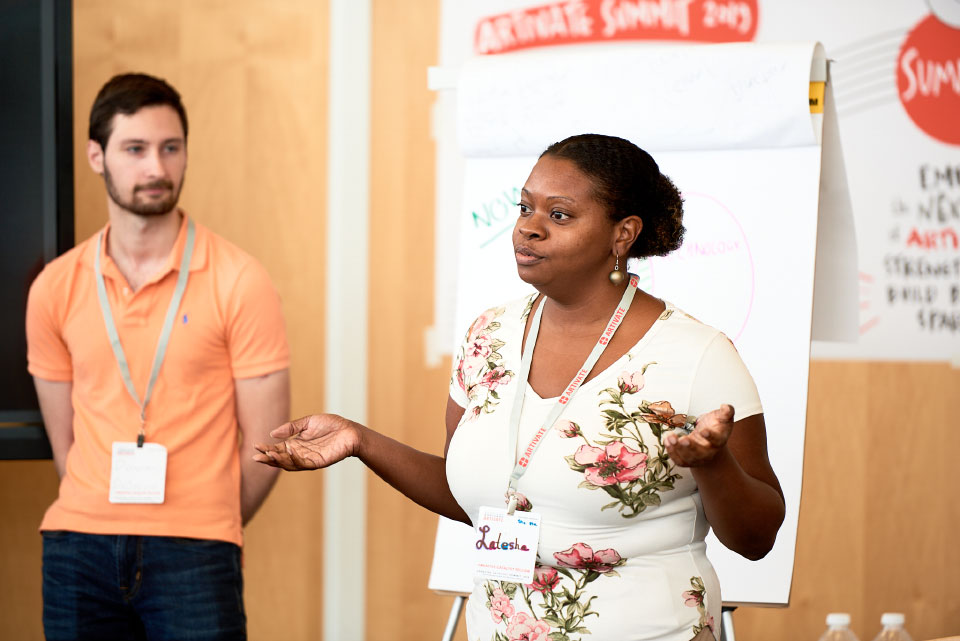
Smith participating in a session at the 2019 Artivate Summit as part of the Creative Catalyst Fellowship program.
In recent years, she found she was getting more and more offers to work with festivals. Even so, when her cousin sent her the position listing for the Creative Catalyst Fellowship with the Spoleto Festival in Charleston, S.C., it seemed like a longshot. “I didn’t know that it would actually work,” she says. “I had 17 interviews lined up in the D.C. market at that time.”
“When I read the job title and description, there was art, storytelling, festival work, international aspects,” she says. “It bridged together all of my loves.” So, she applied. It also seemed like the perfect opportunity to help her make a pivotal transition in her career.
Smith says she hoped for a role like the Creative Catalyst Fellowship to strengthen her resume, offer her the chance to develop personally and professionally and allow her to explore whether she wanted to pursue a graduate program.
The Creative Catalyst Certificate program has also helped her bridge that gap. The certificate consists of three linked courses designed for working professionals in the arts and creative sector—Artist as Leader, Artist as Innovator and Artist as Entrepreneur—beginning in September 2019 and running through May.
Creative Catalyst Fellows participate in the certificate program, attending virtual lectures, contributing to online discussions and participating in the annual Artivate summit held in Winston-Salem, N.C.
Smith takes part each week in the certificate program, alongside the other Creative Catalyst Fellows and 30 working artists from across the country.
It’s never too late for a dream project
The Creative Catalyst program, Smith says, can facilitate positive growth for those creative sector workers looking to make mid-career shifts or for any artist wanting to explore creative and entrepreneurial growth opportunities.
For people who want to pick back up creative aspirations they had in in their teens, 20s and 30s, this program can help them realize that those dream projects are attainable.
“For people who want to pick back up creative aspirations they had in in their teens, 20s and 30s,” she says, “this program can help them realize that those dream projects are attainable.”
In fact, much of the focus of the first course, Artist As Leader, was about revisiting and exploring an individual dream project. For Smith, it was her own Good Hair Festival. She hosted the first such festival in 2016. Her dream is to make it a recurring event, consisting of three components: a trade show, discussions and tutorials, and performing and visual arts.
Included in this dream project assignment was a task Smith had been wanting to do for a while—creating a website. A critical component of the project was a portfolio site showcasing her ideas. It was an opportunity to explore this desired skill through a real-world venture.
“I always thought of creating a website as this huge ordeal,” she says. “Creating it allowed me to see how sometimes fear can stunt our growth. It was very revealing.”
In that way, the program has not only been a skills refresher, she says, but has provided a vital spark. “You may have skills that have never been ignited,” she says. This program has helped ignite those skills (like her technological experience) while elevating her existing experience in arts administration. “It fortifies what I’ve been doing.”
Engaging the community as an artist
Smith, who began her fellowship with the Spoleto Festival in Spring 2019, has largely focused on community engagement and the festival’s world premiere opera composed by Grammy award-winning musician Rhiannon Giddens.
The opera, “Omar,” is based on the life and autobiography of Omar Ibn Said, an enslaved Muslim-African man brought to Charleston in 1807. The opera was originally planned to debut at the 44th annual Spoleto Festival in May 2020, though the COVID-19 pandemic has forced the festival to reschedule the opening to 2021.
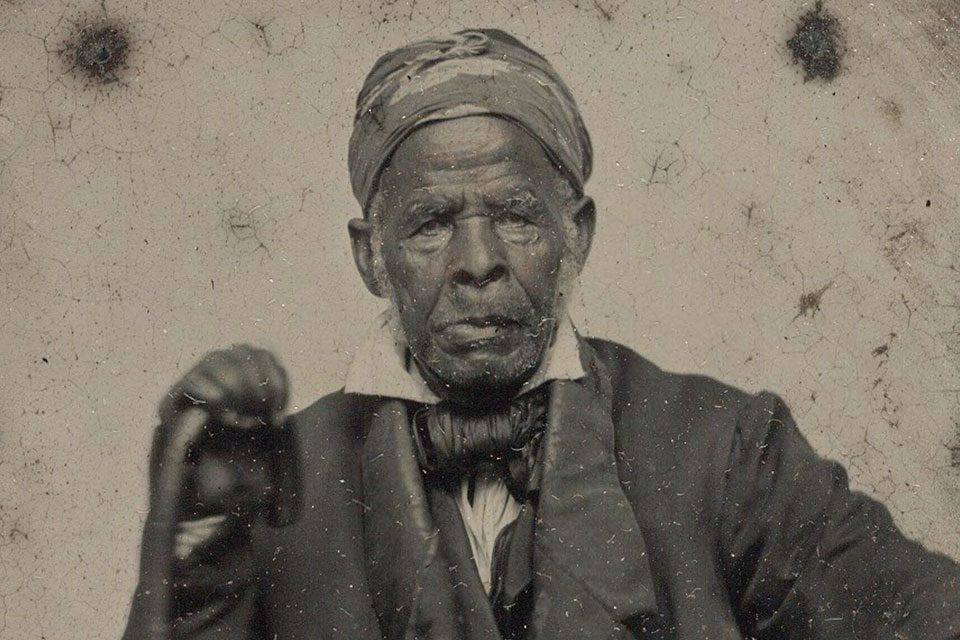
Much of Smith's work for Spoleto has been focused on creating community engagement programming for Rhiannon Giddens' original opera, "Omar," based on the life and autobiography of Omar Ibn Said.
Under the festival’s Spoleto ETC: Engaging The Community initiative, Smith has been tasked with finding unique ways to involve the community and local students in “Omar” the opera and Said’s real-life story. “We can learn a lot about Omar and who he was based on where he was from and where he lived,” Smith says.
To that end, the outreach programming for “Omar” is themed around understanding and connecting with these places and with the artists’ creative processes. Leading up to the Festival, professors and historians will participate in the Festival discussion series “Exploring Omar.”
The Festival will work with Shared Studios Portal to connect the broader community to themes around Said. Participants will enter a gold portal in Charleston and find themselves transported to Dakar, Senegal, Said’s country of birth, interacting with artists, faith leaders, students, influencers, journalists and pedestrians in a community more than 4,000 miles away.
Smith first heard about Shared Studios Portal while working at the Smithsonian Center for Folklife and Cultural Heritage and sees it as a chance to highlight artists at the Spoleto Festival USA in a new way.
The programming gives the opportunity for small changes, moments of discussion and reflection. It’s open to 10 people at a time, allowing for a limited number of visitors per day. But what Smith hopes is that those visitors will take what they learn and experience and share that with others.
That was the reason I wanted to do this. It passively draws the connection between Senegal and Charleston ... A lot of people from Senegal came through the Transatlantic Slave Trade and maybe some visitors will make those ancestral connections.
“That was the reason I wanted to do this,” she says. “It passively draws the connection between Senegal and Charleston. Sometimes that’s what we need without being overt. A lot of people from Senegal came through the Transatlantic Slave Trade and maybe some visitors will make those ancestral connections.”
It also, in part, reflects her vision for the role of art in society. “I see art as social justice,” she says. The program is designed for a broad audience—those in the surrounding community who may not be able to come to most or all of the festival and, on the flip side, those who come to the shows time and time again. An audience who can share what they learn with their own communities and continue to carry on the impact of “Omar” and Said’s story.
About the Fellowship
The Thomas S. Kenan Institute for the Arts is partnering on far-reaching education
and outreach endeavors in order to connect Spoleto and “Omar” with Charleston schools
and community organizations. The Community Engagement Coordinator role, created within
the Festival’s full-time staff, ensures robust programming takes place in the region
throughout the 2019-20 school year. The material created by these education and outreach
endeavors will subsequently be used by Carolina Performing Arts.
April 08, 2020
